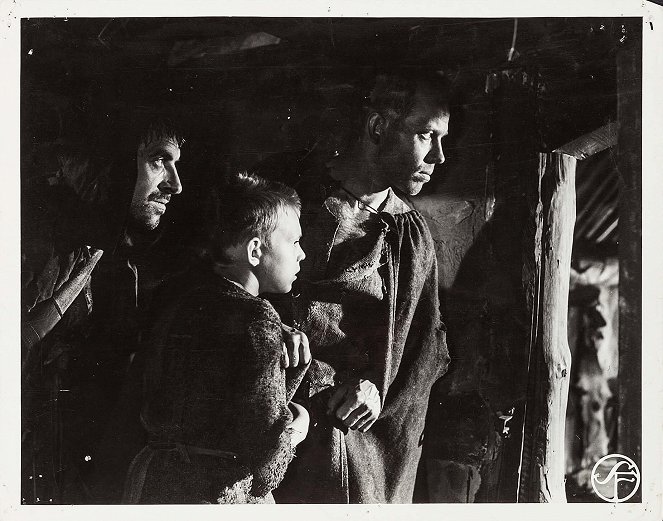Rendező:
Ingmar BergmanForgatókönyvíró:
Ulla IsakssonOperatőr:
Sven NykvistZeneszerző:
Erik NordgrenSzereplők:
Max von Sydow, Birgitta Valberg, Gunnel Lindblom, Birgitta Pettersson, Axel Düberg, Tor Isedal, Allan Edwall, Ove Porath, Axel Slangus, Gudrun Brost (több)Tartalmak(1)
Ingmar Bergman egy XIV. századi legenda alapján készült filmje kevésbé ismeretes Magyarországon. Töre, a gazdag paraszt feleségével, lányával és szolgálóival él egy tanyán. A mélyen keresztény háztartásban található egy kakukkfióka is: ő Ingeri, a fiatal cseléd, aki titokban Odin istent imádja. Egy nap Töre szemefénye, a naiv és elkényeztetett Karin a szomszédos falu templomába indul, hogy az átaludt mise után gyertyákkal kedveskedjen a papnak. A lány eléri szüleinél, hogy Ingeri is vele tarthasson a sötét erdőn át vezető úton. (Örökmozgó)
(több)Recenziók (3)
An incredibly chilling drama that disarms you only by the fact that Bergman decided for a complete absence of film music and allows only words and natural sounds to attack you. This is definitely not a film about the explicitness of violence, about how to portray rape on screen. Bergman left that to Wes Craven. Bergman primarily chose to show the terrifying contrast between beauty and human abhorrence, between justice and what is moral. He succeeded completely in this and the film will definitely leave you with a shudder. The conclusion, which is actually a contemplation of the meaning of God, will only support your effort to think about the film and what happened. And we should think.
()
An incredibly intense and suggestive combination of a medieval ballad and a dirty psychological film, the central point of which is the motif of innocence and revenge. From a carefree and sunlit introduction (in fact virgin) to a brutal deflowering by the Nordic darkness and the animality of revenge. Bergman uses ornamental language on the edge of a poem, which contrasts perfectly with the rawness and detail of the image. And now the inescapable question of whether Vláčil saw this... Unlike Markéta Lazarová, The Virgin Spring is less built on symbolism, and thereby the more it gives space to the psyche and to motivations. On screen, the fantastic Max von Sydow presents one of the most convincing studies of a man avenging absolute pain. Birgitta Valberg is placed in the background, but her motherly role radiates intense fragility and a kind of secretive female power. For Bergman, the seemingly more sleekly diverse female principles and the raw world of men typically clash in the film... the result is a something that can destroy a person in a few shots. A film that is paganly animal, but also Christianly humble in its tone... Perfection itself.
()
Though less sweeping and symbolic in its ideas than The Seventh Seal, for instance, this film is more powerful and far more evocative in its depiction of the cruel Middle Ages than Bergman's previous works. An exquisite study of a heinous moral crime and compulsory vengeance, which unfortunately has the same sovereign status in human history as in modern cinematic history (Steven Seagal and others of his ilk could tell you about it). Psychologically impressive, emotionally accurate (from the opening routine of a sunny day to the atmosphere of sheer mental terror in the final scenes), and also superbly acted. If Bergman had refrained from some of the lengthy monologues and hadn’t wallowed so much in pandering and ambiguous subplots, he would have been a true king of filmmaking. But let’s celebrate him for he was the way he was: unique :)) 85%
()
Galéria (57)
Photo © Svensk Filmindustri


Hirdetés